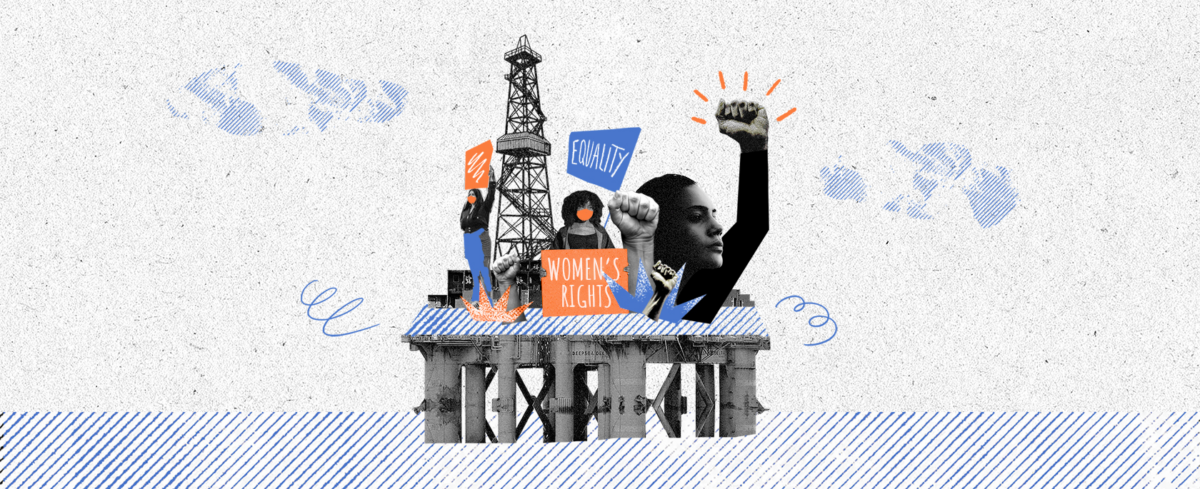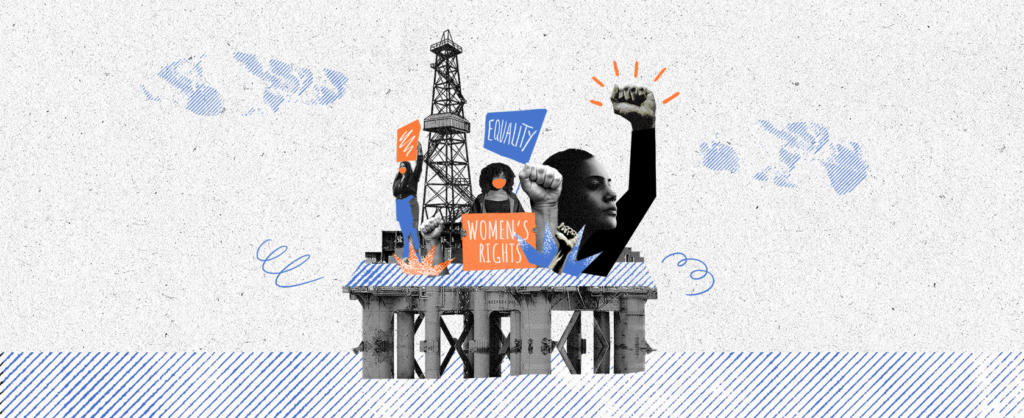Natural resource extraction has often taken place at great cost to the health, environment and livelihoods of local people. And women and girls are bearing the brunt.
Globally, just 5-10 percent of people working in the extractive industry are women. They are generally paid less than their men, and without access or opportunities to gain technical skills, they are often relegated to some of the most dangerous jobs.
When mining starts in an area, it is often women who have to find other sources of food and travel further to fetch water and firewood. When communities are displaced because of extractive projects, women often have no rights to land ownership and receive no compensation.
From gender-based violence, to unpaid care work, and rights to land and livelihoods – the oil, gas, and mining sectors are major perpetrators of women’s rights violations, particularly of Indigenous women.
Women’s voices must be centred in decision making, but in 2020 just one-fifth of the Extractive Industries Transparency Initiative (EITI)’s multi-stakeholder group members were women. This is unacceptable.
PWYP is strengthening women’s voices in the extractive sector. Through our global network of members, we are campaigning to ensure that women are included in decision-making, from community to international levels, and throughout the EITI process.
Find out more: A feminist vision of natural resource governance.










